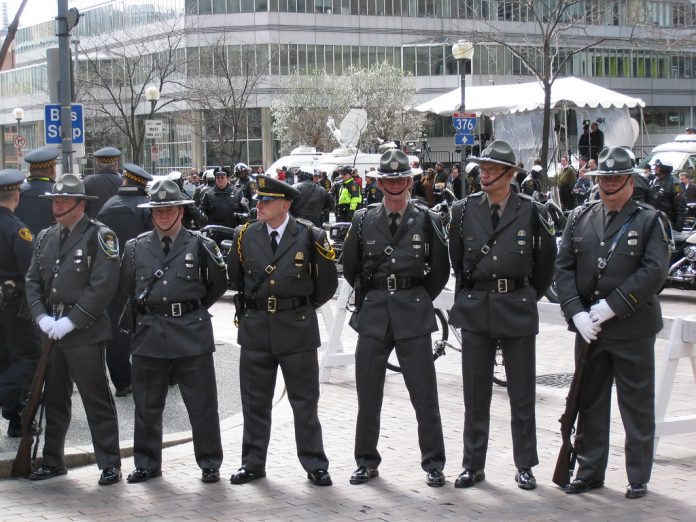Pittsburgh police offer phone recording in lieu of officers to deal with a growing personnel shortage after budget cuts.
By Eileen Griffin
An overwhelmed Pittsburgh police department is making significant policy changes to compensate for staffing shortage.
The Pittsburgh police department will be assigning most calls coming in between 3:00 a.m. and 7:00 a.m. to a recorded telephone line, the Daily Wire reports. Only calls considered “in-progress emergencies” will be provided with a personal response.
From 3:00 am to 7:00 am there will be no desk officers available at any of the city’s police stations. Officers will be in the field, but their numbers will be reduced to as low as 22 during these hours. These few officers will be expected to cover the entire city.
Police units will be strategically placed throughout the city during the night shift, a city press release states. The city will also install blue phones with direct 911 access for the 3 a.m. to 7 a.m. shift.
During the day, the city plans to offer an enhanced Telephone Reporting Unit (TRU). Dispatch can route calls to the TRU where reports can be filed over the phone. Online citizen reporting will also be added.
Pittsburgh police chief Larry Scirotto told the Daily Wire the city is suffering from staffing shortages. In the past, 42 officers were typically assigned to the overnight shift. Now they will likely have 12 fewer officers available.
The city used to recruit between 70 and 90 new police officers each year. This year they have 24 recruits. the Pittsburgh Post-Gazette reports. In 2022, 74 officers retired or resigned from the Pittsburgh police department. In 2023, the department lost 102 officers.
The staffing shortage in Pittsburgh is reflective of police staffing shortfalls across the country.
Policing has become far more risky as officers are often targets for misplaced anger and hatred, as Heartland Daily News previously reported.
Police officers were on the front lines during the George Floyd riots with many ending up injured or killed. The ginned up hatred toward police resulted in random acts of violence and even murder.
Public sentiment was against law enforcement and toleration of anarchy ruled the day in many cities thanks to leftist policies and soft-on-crime elected officials.
In 2020, the Pittsburgh city council was referred to as an “anti-cop city council,” the National Police Association (NPA) reported at the time.
“Apparently, Pittsburgh, Pennsylvania is one of those places that hasn’t yet smacked into reality and its city council remains stuck in the anti-cop muck,” Steve Pomper wrote for NPA.
Throughout 2020, the Pittsburgh city council enacted reforms to change the way the city’s police force functioned, Public Source reported at the time. Action taken by the city council included a hiring freeze.
City council member Rev. Ricky Burgess was the prime sponsor of the 2020 hiring freeze.
“Within a few years, you can significantly decrease the number of officers, which can significantly decrease the police budget… it is the only practical way to do it,” Burgess said at the time.
Council member Erika Strassburger supported banning tools used to attempt to control rioting.
“Currently, I personally don’t understand why tear gas or bean bags are ever used in protests, and that needs to be a conversation that I have so that I understand that,” Strassburger said at the time.
After reducing the police budget, restricting hiring, canceling recruitment classes, eliminating effective policing tools, and enacting policies to demoralize and discourage the police force, the foreseeable outcome is significantly fewer police available to protect communities in Pittsburgh, and elsewhere.
Chuck Wexler, executive director of the Police Executive Research Forum told the Post-Gazette that he has never seen a staffing crisis this bad before.
“Policing is a risky profession, and public scrutiny has skyrocketed,” Wexler said. “There are very few professions where you are required to wear a body-worn camera and your actions are going to be viewed every day. For some people that feels like more risk than they’re willing to tolerate.”
Scirotto says this staffing and support plan will use the city’s resources in the “most efficient and responsible manner.”
“I think the strategy at this point is a hope and a prayer that they can base everyone on data,” Bob Swartzwelder, president of the Fraternal Order of Police Pitt Lodge #1 said of the Pittsburgh staffing plan. “It may pan out to be correct. It may be disastrous.”
For more Budget & Tax News.










